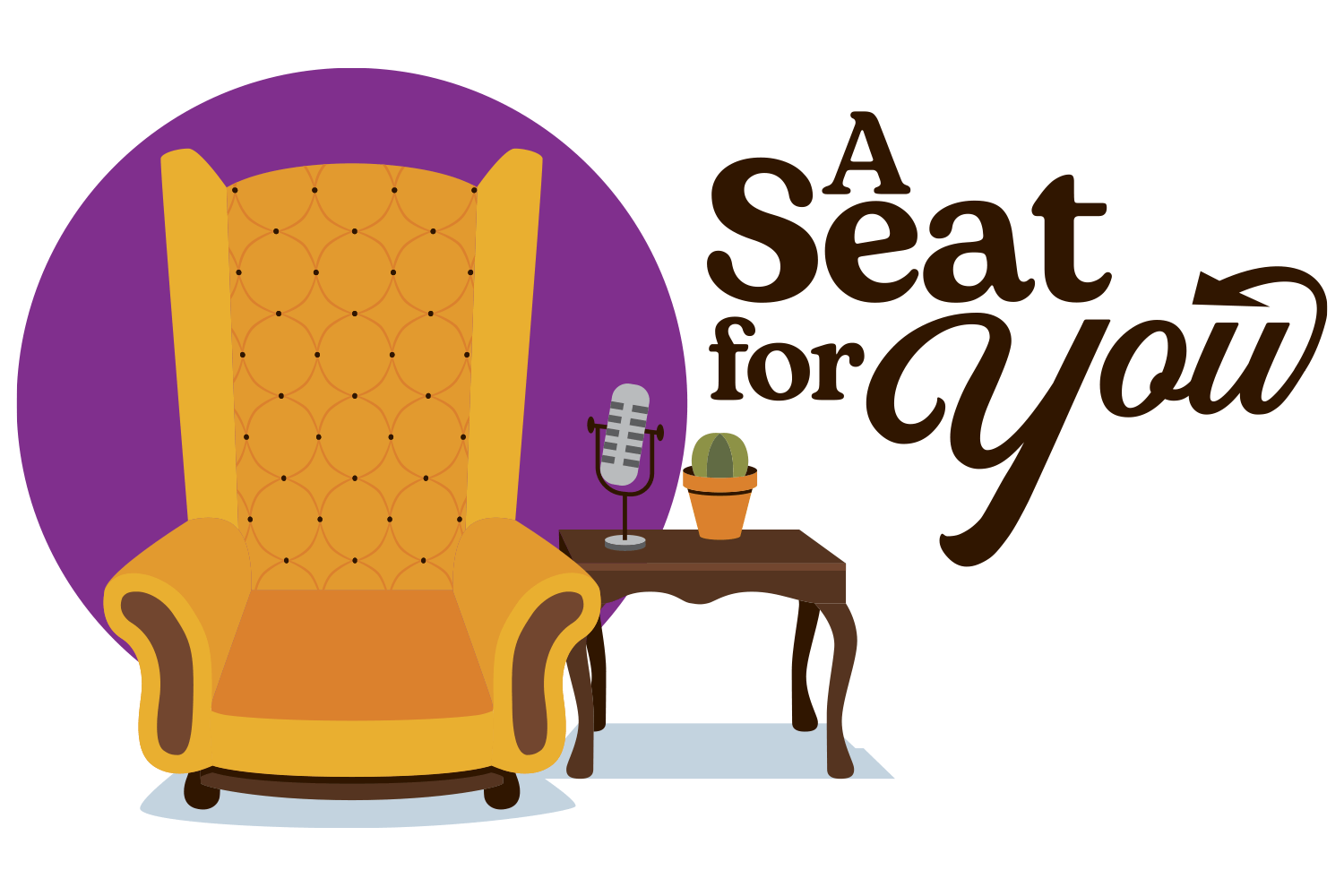Episode 11- Listening Beyond the Noise - Tips for Meaningful Conversations
Leslie: [00:00:00] Hey, everybody, here we go. Um, today's episode was inspired by a series of events that happened on a drive back home from Miami this past weekend from the soccers and, um. We decided today's topic was going to be about listening and is it something that our society really does? I mean, obviously you're listening to this podcast, but with the amount of noise that comes our way every day, what are you really listening to?
April: Yeah. And I think there's a big difference between listening and hearing because so much of what we consume every day is really just hearing things in passing. Um, like, you know, as we scroll through reels and TikTok and things like that, we're just hearing things and scrolling. And so our attention spans are like nothing.
And when we go to keep up with trends for work and whatnot, [00:01:00] um, it will tell you how long you have before someone's gonna scroll past and it just, it seems like our attention spans are like getting less and less every day.
Leslie: Yeah, I think they're less as, they're, they're less than a goldfish.
April: That's insane. Also sad, but anyway, so there is a massive difference between actually listening and passively hearing. So,
Leslie: yeah, well, in preparation for this episode, I wanted to look some things up and, and see what's, what really is the art of listening? What are the skill sets that people need for effective listening?
Right. And I found, um, a few things online and this, this paragraph I thought really summed it up well, and it actually kind of called me out on some things that I know that I have issues with. And so... Um, I'm going to read this from online. It says ...
"the art of listening is a crucial skill for [00:02:00] effective communication and building meaningful relationships. It involves actively paying attention to others. understanding their perspectives, and responding thoughtfully. Good listeners are empathetic, non judgmental, and able to maintain confidentiality. Practicing active listening can help you build trust and develop stronger connections with others."
And, uh, I definitely know when I read the part about, you know, I can pay attention.
I don't really have a problem with the paying attention part. It's, it's sometimes I have the issue with the understanding their perspectives and not being, um, judgmental, which that kind of, you know, is an issue, right?
April: And I feel that's where the empathy comes in, because empathy isn't just feeling sorry for somebody. It's that, I mean, it's more of like understanding their lens of how they are seeing something, whether you agree with it or not, you can have [00:03:00] empathy, um, I mean, in everything. And it's kind of like, let's say somebody's got a specimen and you're both looking at the specimen under a microscope, but you guys have two separate microscopes.
Um, maybe their lens has an ability to see like really deep through the specimen and yours is better at seeing the surroundings. And so if that person is explaining to you their thoughts on, you know, the center of the core here, and all you can see is the parameter or the, the outermost part of something, then you're not going to come to an agreement because you have two completely different lenses.
And I think a lot of times that's kind of like what's happening in our culture. We've got people who have experienced oppression and, you know, horrible things at its core and other people who are [00:04:00] in power, are creating laws and boundaries and things that they've only been able to see the surface of things.
So they're not taking into account the depth of what some people experience or see things through. And I mean, lo and behold, there we have our entire, you know, political climate right now. So, yeah.
Leslie: And I mean, and, you know, empathetic listening. involves not only hearing the words that are being spoken, but also paying attention to those nonverbal cues that are happening like facial expressions and body language, it requires being fully present and engaged in the content in the whole conversation, you know, giving your undivided attention to the speaker. So I know you were going to bring up some. Some nonverbal cues that that you've noticed before
April: and it's like if you I, [00:05:00] I have, you know, friends in my life or people past friends rather that are really bad at interrupting. They don't mean to, but they do. And it's like, you can't even get a full thought out before they start talking, it's like they haven't even fully listened to what you have to say because their train of thought already has a conclusion without listening to you. And so they kind of stop you without even noticing it and continue their thought, not even being able to comprehend what you just said.
And like my face doesn't typically hide my feelings, even if I try. And so I know, like, with specific people, they can tell if I'm like, they'll interrupt and I kind of make a face like, Okay, carry on, you know, like, I'm kind of sarcastic in that way. But it's kind of a pet peeve when people interrupt.
Leslie: Yeah, I mean, [00:06:00] it's frustrating because it, it makes me feel like you really don't care about what I'm saying. You're too worried about interjecting your point of view. And so you're, you're not listening to me. You're not absorbing anything that I have to say. You have zero care in the world about the words coming out of my mouth. You just want to feel, fill the space with the sound of your voice, you know, and, and be dominant in that, that way.
And another thing that really Is a non verbal cue for me, um, you know, is the being on your cell phone when you're engaged in conversations, um, you know, because I know people are like, well, I can multitask really multi multitasking is not a real thing. You look it up. We don't have time to discuss that in this podcast, but it's not real.
Multitasking is not, you don't, no one has the ability to split your attention, um, and fully.
April: You're really multi half assing.
Leslie: Yeah. Oh, I [00:07:00] like that one. Multi half assing. I like that. Put that on a t shirt. You know, so when someone is, on their phone and if, especially if like the conversation has been going and then someone gets on their phone, that either one tells me that, well, this conversation is not very interesting to them.
So maybe we should not talk about this any longer. Or you just. You don't have the ability to focus. So you're off to the next thing. And really, why am I here having this conversation with you? Um, you know, it also is just kind of rude at times. It's like, right. If you, I get it. We're all very busy people.
And I, I'm the same way. Like we, when we were having, um. Conversation one morning at Starbucks with a friend. Like I felt bad because I had, you know, work, work was going on. And like, I needed to be very focused and mindful on, on something, but I also wanted to be mindful of this conversation. And, you know, I said from the beginning, I [00:08:00] apologize.
I may have to jump on my phone and handle certain things because there's important, you know, high priority things that are going on and I get that. And that's fine. If, if that kind of comes with. with a condition.
April: That's different. Yeah. Yeah. I feel like that's different whenever you give them kind of that, that heads up.
That's not really, I'm not interested. That's means I'm, I've got multiple things going on today and I'm going to need to kind of split my attention when needed. Right. But I think whenever someone, and I'm really bad about this, especially like when I'm at my mom's, I tend to like get on the phone cause I'm.
Like either talking to you or, you know, somebody else and she's talking, I do it all the time and she absolutely hates it and I, I need to be better at that. But anyway, um, I think too, if you're like talking to a friend and they, in the middle of it, just kind of check out and look at their phone. I think that's when you can do like a sound check for them and [00:09:00] be like, so also your mom called and your house is on fire and your dog died.
Like, you know, like something dramatic to see if they actually are engaged. They're like, wait, what? Right. Right.
Leslie: And I mean, you know, if, if I think that's where communication comes in line, like if, if some people do like tune out, they can't. Their mind can only hold so much information. So if it's been a long, you know, conversation and, and I'm, I'm also guilty of like, this is nothing that I'm pointing fingers at anybody else at.
I mean, these are all things that we all do, you know, I think it's just being respectful in those conversations. And being mindful of maybe what your actions are communicating that, you know, when your words are not being used at that moment.
April: And when you actively, like, listen, it's showing that person that you actually are acknowledging [00:10:00] them and you care about what they're saying and you're, you're listening not to respond. You're listening to understand.
Leslie: Yeah. And that's where, you know, again, that, that lens of empathy comes, comes through there because you know, it's, it's important to be side by side with that person when they're telling you some, especially if they're telling you something very like personal or, or whatever, you know, meaningful.
If it's just like. Oh, I'm just telling you this new, like, television show that I'm watching. Oh, okay. Like, yeah, you can probably, you know, multi half ass that conversation, um, but if someone's sitting down and having a serious conversation with you, being able to walk alongside of them and try to, to put yourself and acknowledge the [00:11:00] emotions that they might have been going through during this story.
I mean, that, that will allow you, like, anytime, you know, maybe someone's talked to you about Yeah. Yeah. The death of a family member or you know the sickness of someone in their life or whatever like you and you can Feel yourself like you can relate you can say oh, I felt like this when this happened to me kind of thing That's where practicing empathy is so important when when you are actively listening Reserving your judgments, right?
Instead of saying well, I didn't feel like that when that happened to me You know, like, Oh, you're just being, you're just being too soft or, Oh, you're just, you're being too emotional about this. No, that's not your place to say that.
April: It's not helpful.
Leslie: Yeah. And I think like we have a default of, I'm not even sure we're able to not come to some kind of judgment or conclusion about some time, some things, [00:12:00] you know.
April: Um, but I think the ability to kind of filter through that and be like this, I want to respond, but I'm not going to respond. It's kind of your own internal filter. , instead of responding with what you may want to say, maybe just let them finish out the whole thing, kind of get the whole picture before coming to any conclusion or, you know, sharing any advice or,
Leslie: cause sometimes people aren't, you know, aren't telling you something to get advice either.
April: Sometimes they just need your ear and understanding when that time is, is also super important.
Leslie: As an enneagram too, I'm the helper. And so I love giving advice, you know, I'm going to give you all the advice. And I know that I have to be very intentional and mindful if what the words that are about to come out of my mouth, are they really words you want?
Are you seeking them or, or are you just, you just need to get something off of your chest and you're just, like you said, needing that [00:13:00] ear.
April: Well, I think you're also really good at asking questions. To kind of understand what they are wanting out of sharing that with you. You know what I mean? Cause also the questions serve as I am actually listening to you.
And this question comes from me understanding what you're saying, you know? And so I think when you ask questions. It means that you're engaging and it's also helpful for you to understand what exactly they want out of this conversation. If they just want your ear or if they really, truly want your opinion, because sometimes it's both.
Leslie: And I think, I mean, I think now's a good time to kind of, um, introduce the series of events that happened over the weekend because, um, and it's kind of a little bit backward. So it was late Sunday evening and you sent me. Uh, this meme, sorry, we're, we love the memes, right? Last episode was about the memes, but.
April: Well, it's, it's really a quote that someone just [00:14:00] put on a background. Right. So it's like, but it's not like funny or anything.
Leslie: Yeah. When I read it, I was just like, wow, this really sums up what happened earlier today. Um, and so it's, it, the Instagram account, "the happy givers" posted this quote, like you said, and, and, um, you want me to read it or are you going to read it?
April: Oh, I don't care. I can read it.
Leslie: Go ahead.
April: All right. Um, this is a quote by Sarah Maddox and it says,
"when you debate a person about something that affects them more than it affects you, remember it will take a much greater emotional toll on them than on you. For you, it may feel like an academic exercise. For them, it feels like revealing their pain only to have you dismiss their experience and sometimes their humanity. The fact that you might remain more calm under these circumstances is a consequence of your privilege, not increased objectivity on your part. Stay humble. "
Leslie: Yeah, like that really, that really struck [00:15:00] me. Because. That kind of summed up a lot of things. I think we've mentioned before, um, where, you know, people come from a, a place of, of different levels of privilege. And when you respond or debate with someone, especially if it's about a topic that you aren't necessarily directly impacted by, like, uh, racism or homophobia or ableism or, you know, whatever, fill in the blank.
Um, but you're just, you're so passionate about your point of view when you're not even a part of that community. And you're debating with someone who might be part of that community, It can really be emotional for them to have to like, feel like they're fighting for their life, not only like on a regular, everyday basis in society in general, but now in this conversation with you, they're fighting for their life again. You know, and, and, um, right,
April: it's the [00:16:00] high powered lens versus the surface lens.
Leslie: Mm-hmm. . Mm-hmm. . And so to back it up one more step, so earlier that day on the ride home, um, you put on this, this podcast, um, "the new Evangelicals." Yeah.
And, um, it was definitely something that. After listening to it, I, I, I typically have not been super triggered by a lot of things, but after listening to this, I definitely, I was triggered.
April: So if you don't know who the New Evangelicals are, so it's, uh, Tim Whittaker, he's the creator and founder of the podcast and it's a whole organization. And so basically this guy came from the same background as I did., We have lots in common. He was a musician as well, and he is now kind of considered an ex evangelical because he kind of started, you know, deconstructing, kind of breaking down his belief system several years ago and finding [00:17:00] out and learning all these, you know, inconsistencies and just things that were not okay within his.
world, his belief system. And so he had to exit from that. Um, he lost a lot of friends, lost communities, um, but he's gained kind of a whole separate community here in this. And so what he does on his show is try and uncover, injustices throughout the church world. And so he facilitates conversations, usually with big name people.
So this past episode, he was speaking with a guy named Zach Lambert. And it was about an event that happened in Georgia. If you don't know who Andy Stanley is, he's a really big mega church pastor. Been around a long time. Has a lot of literature, has like 30, 000 plus members. Several locations.
Anyway, he held an event called [00:18:00] Unconditional, and it was held specifically for parents of LGBTQ plus youth. And how to, whether you are on board, not on board, um, but open to learning, this event was for them. And I thought it, that's, because it was a really risky thing for him to do. Um, he's going to get all kinds of backlash for it and already has.
Um, but it's a, it's a huge step. And so in this podcast, he was speaking with this guy, Zach, and they were. recordings of another conversation that was happening that was basically against what he was doing, what Andy Stanley was doing with this, event, because obviously there's a traditional view.
And so this conversation with the other two guys was kind of bringing up reasons why this [00:19:00] Andy Stanley is dangerous reasons why this event was, it should not have happened or it was heretical. And so they would play that conversation and then have a rebuttal for what they were saying.
And so it was just this back and forth type thing.
Leslie: Yeah, it was, um. Yeah, it was it so this he has a regular podcast the new event evangelicals, but this was a new thing I guess he started on on YouTube. So it was more of a live and engaging type show on video and It was it was Tim and Zach like you were saying but then and they went to the conference So it's not like that was you know hearsay They attended the conference and these other two people that were, that had a separate show after this conference, um, Sean McDowell and Alan Schleman, um, Schleman, Schleman, um, they, uh, you know, had their take.
So, like you were saying that back and forth [00:20:00] conversation and, and I guess what caused the triggering for me was listening to this rather long conversation, you know, it was a long drive back. So we had time and I think it was that that pull the ebb and the flow of the the two different perspectives Because you have you had one side that you know is very clear against it And then you had another side who was more from a pro stance that this is a healthy conversation to be having.
And you have me, and they're both coming from it, both sides are coming from it with a very heavy religious lens, right? So that
April: Right. And also a white, cisgendered man.
Leslie: All four people, white, cisgendered men. Um, and then you have me sitting in the middle of this conversation as it's happening, who I'm on my own faith journey, you know, religious [00:21:00] journey, whatever you want to call it in my own interpretations of, of how all that works and, kind of learning from a fresh perspective later in life, you know, in an inquisitive way, you know, finding out things for myself, not just being instructed how to feel about something. And I got to tell you after that, I mean, I, I think we stopped it. It was cause it was like a two hour conversation. I think at one point we stopped it, but it was, it was way too far. It was like an after an hour and 45 minutes because I just, I just couldn't take it anymore.
I like, I listening to that, the, the changing narrative, I felt like a rag doll. And just getting pulled apart. And it made me think of. Something that you had said, um, to me, I don't know, how long ago was that that you were [00:22:00] kind of experiencing that?
April: Um, what are we talking about?
Leslie: Like, like when you, when you were also having, like, every day in your life, you would have these, like, These back and forth conversations in your head.
April: I would listen to podcasts or speakers or whatever, like while I was working and I would, I would listen to someone who was clearly against it because I thought that that's what I needed to condition myself to, in order for me to change or to fix myself. So I would listen to that side and it would just be so painful, but it was like I needed to hear it because this was part of the growing process, quote unquote.
And, but then I would hear like something else that was completely the opposite side of that, like more of a pro stance or an affirming stance. And, also on the same, faith level that I was at, and it was like, you can just, you know, be yourself, be free. [00:23:00] And so then it would be back and forth between these conversations.
And it's caused me to get in some really dark places. And so once I started, talking to my first therapist., Jen, a couple of years ago, she's like, yeah, you got to stop doing that because it was really, and this tug of war, it wasn't just from, you know, a couple of years of listening to, um, opposite ended podcasts.
It, this has kind of been the conversation in my head my entire life. And so I guess when Leslie was upset and I wasn't, I was like, I guess because. I'm very used to this. And so my lens at that point was way different. And so, um, it, you know, it got to the point of tears for her. Hopefully you don't mind me saying that, but, um, and this was much later in the afternoon and I was like, what's upsetting you, you know, and I think part of what it was too, was at one point, they were talking about [00:24:00] how this event and, you know, certain things that are happening in the world, we've made some really huge
and like right now for me, it's good news because it's like, you've got half and half. That's a lot better than 90, 10, you know, that believe that, you know, or affirm and you know, 90 percent that don't. For me, the split is refreshing and it's great news because it seems like we're heading in a great direction.
And so with what Tim was saying, he was saying that. Change is going to take time. He knows these things take time. And so that's when Leslie paused it and kind of got upset about it because it's easy for someone in his position, a straight white man, to have that position of, Oh, it can wait, it can wait.
Whereas, you [00:25:00] know, people in, in our realm of things, or People in the black community or indigenous or, whatever it is, they've waited enough. And so it's like, that's a really privileged thing to say, from his lens. And so that's where I think you started to get upset.
Leslie: Yeah. I mean, that's one, one of the things it's like, cause. I mean, he did say he had two trains of thought, you know, his first train of thought was to, pull the pin on the grenade and blow the whole thing up. And then the second train of thought was, well, this takes time. You know, my thing is, there is no second train of thought there.
It's, it's the first train of thought, pull the pin and blow the whole thing up. Because, you You know, not to ruin this whole, you know, if you want to go listen to the episode and I think it would be great for, for anyone to do that. But this, and I didn't know who this Andy Stanley person is. I mean, I, I don't follow mega churches or anything like that.
Um, you know, but to hear like that [00:26:00] this weekend occurred and, and all that again. Sounds great. And then apparently on Sunday morning after the conference, he gets up and preaches multiple states, multiple churches across Atlanta. Um, and has a, 49 minute sermon, um, where he's talking about all the and, and, and in the movement in that direction, which, which really sounds great. And then apparently the, the last minute he said, just to be clear, our, our church still, you know, views marriage between a man and a woman. And I think that for me was like the, I guess the, the punch in the gut, cause it's like.
How are you and well, didn't say some someone say he was an ally or something like that, or maybe that was your position. I can't remember exactly. There was so much information that was being said, but I'm like that that is not an ally. You know, I understand what you're saying that [00:27:00] there is progress being made.
But moving five steps forward, but then still digging the hole that says, well, just so you know, we don't actually a hundred percent affirm that and, you know, like that is not. That is not an ally. That is someone who is trying to, uh, appeal to people in a new kind of way. And I feel like they're luring you into the, building or to the faith only to then say, well, but there, you still have an issue.
You're, you're, it's not exactly. It's not exact. You're not 100 percent welcome here. There's still an issue. And that's, I think, what upsets me the most.
April: Right. And so going back to that quote that we were saying, it was kind of like, this was a, um, [00:28:00] privileged academic exercise for them, but then in the same breath, They can discount how you're feeling or your lens.
And so anyway,
Leslie: yeah, pull, yeah, pull, pull the rug right under your feet. Like you're, you're walking down the path and everything is hunky dory and you're feeling good, but then there's a big surprise waiting for you at the end. And you know what, like you said, like, I don't know, Andy Stanley, I don't know what's in his heart.
I don't know where he's really trying to come from, but the things that I do know is I do know that there are people fleeing the church left and right hand over fist. I do know that the church system in our country is losing money. I mean, they're still very wealthy folks. Let's not get it twisted, but they are losing money.
And from a business and marketing perspective, I do know they have to come. And figure out new ways to attract new audience to their show. [00:29:00] And the thing that I am learning on my own spiritual journey is that if you want to use Jesus. In both sides of this conversation, you're not using Jesus, right? Right.
And that's what I think pisses me off.
April: Well, I think it's people hearing versus listening. You know, think it's a skill to truly be able to listen. And I don't think it's a skill that many people have because they think that their knowledge trumps. Anything you're going to have to say, and so they hear you, but they're not truly listening to understand or listening to have empathy or, or build empathy within themselves.
Um, so, I mean, I think those are not natural skills and the heart to actually want that. That's where being Christ like comes in. That's where the fruits of the spirit come in. And I think, you know, this whole, this whole war could really be settled with just [00:30:00] some. True listening and true empathy, you know, regardless of where you stand, because my, my stance is that I don't need someone to fully agree with everything in order to be an ally, which you stand somewhere else.
And I understand where you're coming from as well. And you know, maybe, maybe the way that I'm viewing it. is wrong, just simply because I'm a nine and I can see both sides of everything. And I've been on both sides of everything. So it's kind of like my central thought that we can, we can bridge this gap without people having to completely cross the ocean to come to one side.
Like, I think that there, I think that there's a way. That people can think what they want, but we can still have rights at the same time as human beings. You know, so I think it's, it just boils down to be better at listening, truly, truly listening. [00:31:00] I don't care how smart you are. I don't care how many times you've read the Bible or the freaking encyclopedia.
Just listen, because I promise somebody that you talk to, you're going to learn something that you've never learned before. if you truly care and acknowledge that the person on the other side of this conversation is a human being.
Leslie: Yeah. But I mean, I, I gotta tell you, I'm, I, I clearly understand now why the, suicide rates of members of this LGBTQ community are so high within religious spaces because after an hour and 45 minutes, I wanted to do harm to myself just because I couldn't, I was like, Oh, I cannot take this.
I don't know how long or how you dealt with that for so long. Like it's just, it's so, it's so much noise. It's it that really has. Nothing to do [00:32:00] with you. It's all kinds of people's external opinions about something, right?
April: Well, because it, it, it takes a lot of work to understand that it doesn't have to do with you.
And when you're in it, it has to do with you. You are the problem. You are the cancer. You are the poison, the everything. So I think it takes, I and. just kind of self affirmations and just having a relationship with just me and Jesus. That's, I mean, that's all it's supposed to be ever, but it's taken all of this time to understand that this has nothing to do with me truly. And it's to do with the hearts of people. I think with that, I don't know if you're like predisposed to mental health things. But I don't know if within myself, I just was able to [00:33:00] overpower the negative with positive, or if I was just really, really good at putting the box on the highest shelf possible and leaving it. And I really think it's the latter. Like I've just been able to pretend it doesn't exist.
And so what's left is just, you know, this version of me, which is still me. It's just not all me, but it was enough me to keep me waking up every day.
Leslie: Well, I mean, I think we've, we've talked a lot about things that have happened in conversations or active ways to, to be a good listener, but let's wrap up this episode with just kind of summarizing a few of those tips.
So one thing for me is definitely choose to be intentional, intentionally present when you are involved in a conversation with someone. Um, you know, again, be [00:34:00] mindful of the, of the scene that you're, that you're in. Are you sitting down to have a one on one or is it just more chatter between a group of people?
You know, those are different levels of, intentionality, different ways that you need to be present there. So just be aware of your surroundings and understand what people are, are trying to, to get out of the potential conversation that's about to happen. Right.
April: And it's easy to just be like. Just so distracted.
Maybe your day has been super busy and you've got a million things running through your head, but if it's your significant other, your parent, your kid, just kind of like take a break for a few minutes and just be right there in that moment. Right. Um, I liked this one. Be an other minded listener. Um, it's better to be interested than to be interesting.
Be quick to listen, slow to speak, ask open ended questions, seek first to understand instead of to be understood. [00:35:00]
Leslie: Yeah, that's really. That's a really good one. Yeah, become an other minded listener. And we've talked a lot about third tip, be empathetic, never judge. Those are two, two hard things to do, especially in some conversations.
Um, but, you know, seeing, trying to see a situation through another person's eyes and understand how they're feeling. Um, you know, you can't, Do that if you're judging them as they're literally talking to you. So,
April: right. And you can't have both. You can either be empathetic or you can judge.
Leslie: Right. And fourth tip, show that you're actively listening.
Like, like you were saying, ask people questions. Um, one thing in my profession from, you know, being in a managerial role, like you should kind of summarize what people have said to you. Um, so that it makes it clear that you have [00:36:00] listened to them. Um, right. That you are on the same page. You, you get what they're saying.
And if, if there's something that someone's saying to you that you're not quite sure. How they, what they mean by that, just ask, like, don't be afraid to stop and ask. Yeah, yeah.
April: And then the last one, it's don't talk while the other person is still talking. We kind of touched on that earlier. Just don't interrupt.
You know, I know everybody has something to say, but you can't fully have a thought that's pertaining to what that person's saying if you haven't actually heard all that they need to say. So just shut up.
Leslie: Yeah. Am I allowed to talk now? I was waiting. I was waiting. I was waiting. I was giving you space. So, um, I'm sure there's more tips out there.
We would love to have some feedback from you, you know, send us other ways that you can be a great listener, or even if you have some examples of [00:37:00] times where you felt unheard or, or a funny experience that you might've had when it comes to these kind of conversations. So we'd love to hear from you.
All right. Well, until next time, we'll see you later.
April: See you.













